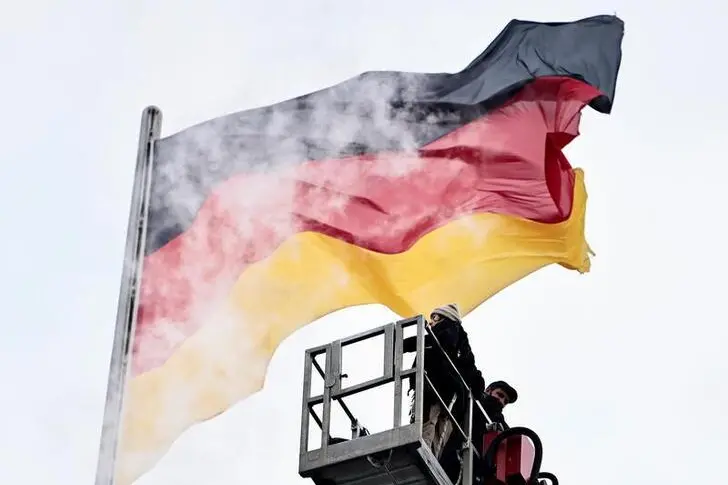PHOTO
If the numerous German politicians vying for leadership of the country’s next government after 16 years of domination by Angela Merkel had any doubts about the difficulty of filling her shoes, the complications surrounding post-election talks to form a coalition will have dispelled their illusions.
As expected, the elections on Sunday have produced a perfect hotchpotch of results, with no party or even two parties gaining enough seats to form a government. As predicted in recent months, the center-left Social Democratic Party, led by Olaf Scholz, emerged as the largest party, with 206 seats, 10 more than the center-right CDU/CSU pairing that had run Germany under Merkel.
The Greens, again as expected, emerged as the third-largest party, with 118 seats, followed by the liberal FDP with 92, and the far-right AfD with 83.
As a result, all the major parties, with the exception of the AfD, have launched coalition talks, with all sorts of possible permutations and combinations.
The SPD is talking to the Greens and FDP, which have decided in principle to act as a bloc in order to form the next government. The Greens and FDP also held talks with the CDU/CSU, led by Armin Laschet, Merkel’s uncharismatic successor at the helm of the center-right partnership.
Nevertheless, there is a large degree of difference between the parties seeking to form a coalition. While the SPD and Greens have much in common on social and economic issues, the Socialists are reluctant to accelerate Germany’s current targets to cut carbon emissions, something the industry is dead against.
But more than the Greens, Scholz will find little common ground with the liberal FDP, whose economic and climate policies are far closer to those of the CDU/CSU. And although the Greens and FDP have decided to act as a bloc, the two have many differences on social, economic and environmental issues.
Similarly, although the Greens-FDP have held talks with the CDU/CSU, there are several hurdles before they can find any common ground.
Finally, even though the CDU/CSU and SPD had been in a grand coalition for the past eight years, it will be easier said than done for the largest political grouping in the parliament to come together and form a government, especially since Laschet’s ratings have collapsed even further following the CDU’s disastrous performance.
Before any talks to form another grand coalition get underway, the CDU has to resolve its leadership crisis, but with Laschet showing no sign of stepping down, it could be a while before this issue is resolved.
Moreover, since the SPD is bigger than the CDU/CSU, it is highly improbable that Scholz will settle for anything less than the chancellorship. Laschet or his successor at the helm of the CDU may push Scholz for a rotating leadership in view of the fact that the SPD has only 10 seats more than the center-right bloc in the parliament.
Eventually, a coalition of sorts will emerge, but it could take a while. After the last elections, even with Merkel around, Germany was without a government for almost six months. How long the parties and their leaders take to form a government this time around is anybody’s guess.
But the next chancellor, no matter who, will soon find that forming a government was nowhere as big a challenge as actually leading it. Running a hotchpotch or rainbow coalition is no easy task, especially without a powerful and dominating leader such as Merkel at the helm.
Moreover, it is important for the country’s new leadership to recognize that as the EU’s biggest economy, Germany has a special responsibility, one that Merkel carried effectively, leading the EU to several key decisions in her 16 years as chancellor.
Her replacement at the top must ensure that Germany not only maintains its leadership position and protects its own interests, but also helps the EU face up to numerous challenges — from the climate crisis and post-pandemic recovery to defense and security affairs, and the perceived threats posed by Russia and China.
- Ranvir S. Nayar is managing editor of Media India Group.
Copyright: Arab News © 2021 All rights reserved. Provided by SyndiGate Media Inc. (Syndigate.info).





















